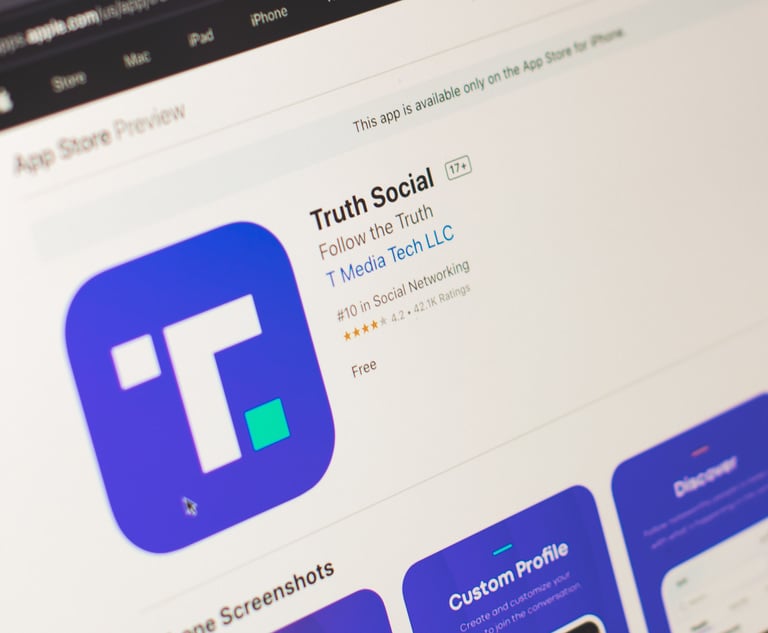 Thomas J. Hall and Judith A. Archer
Thomas J. Hall and Judith A. Archer Shareholder Inspections of Corporate Books and Records
"The right to shareholder inspection of a company's books and records can be a powerful tool for minority shareholders to assess the financial state of the company and to investigate suspected misconduct," write Thomas J. Hall and Judith A. Archer.
August 15, 2024 at 12:00 PM
10 minute read
On suspicion of corporate misconduct or mismanagement, shareholders of a corporation will often begin their investigation by seeking the books and records of the corporation to determine whether they have a valid claim. In New York, shareholders have both statutory and common law rights to inspect their corporation's books and records as long as they do so in good faith and for a valid purpose, which has historically been found to include "efforts to ascertain the financial condition of the corporation, to learn the propriety of dividend distribution, to calculate the value of stock, to investigate management's conduct, and to obtain information in aid of legitimate litigation." Matter of Tatko v. Tatko Bros. Slate, 173 A.D.2d 917, 918 (3d Dep't 1991). The New York Business Corporation Law (BCL) provides that any shareholder of record, by written demand, may examine any minutes from shareholder proceedings or shareholder records, as well as certain financial records, that are reasonably related to that person's interest as a shareholder. BCL Section 624(b), (e). In contrast, the common law right to inspection can extend to all corporate books and records that are relevant to an investigation or dispute.
The Evolution of the Inspection Right
Although the common law and statutory rights of inspection have existed in some form in New York law since the 19th century, they were not seen as particularly effective until relatively recently, owing to a 2014 First Department decision that overturned the dismissal of a pension fund's petition for the books and records of McGraw-Hill, as part of an investigation of possible mismanagement and breaches of fiduciary duty by its board. McGraw-Hill had moved to dismiss on the grounds that petitioners had failed to identify specific wrongdoing, and thus there could be no valid purpose to the inspection. In granting dismissal, Justice Jeffrey K. Oing of the New York County Commercial Division expressed concerns that petitioners were essentially seeking to subject McGraw-Hill to pre-litigation discovery in order to avoid the evidentiary protections that would be available in litigation. This logic essentially crippled the common law right to inspection in New York because an inspection is intended, at least in part, to be a means by which a shareholder could determine if a viable claim even existed. The Appellate Division reversed, holding that "investigating alleged misconduct by management and obtaining information are, in fact, proper purposes for a BCL Section 624 request, even if the inspection ultimately establishes that the board had engaged in no wrongdoing." Ret. Plan for Gen. Emps. of City of N. Miami Beach v. McGraw-Hill Companies, 120 A.D.3d 1052, 1056 (1st Dep't 2014).
NOT FOR REPRINT
© 2025 ALM Global, LLC, All Rights Reserved. Request academic re-use from www.copyright.com. All other uses, submit a request to [email protected]. For more information visit Asset & Logo Licensing.
You Might Like
View All
As Second Trump Administration Approaches, Businesses Brace for Sweeping Changes to Immigration Policy

Seyfarth Shaw Corporate Lawyer Authors Book on Military Transition to Civilian Life

Sullivan & Cromwell Urges Top Court to Resist Making NY the 'Shangri-La' for Derivative Shareholder Suits

Purchaser Representative in Truth Social Deal Seeks Trump Media Records
3 minute readLaw Firms Mentioned
Trending Stories
Who Got The Work
J. Brugh Lower of Gibbons has entered an appearance for industrial equipment supplier Devco Corporation in a pending trademark infringement lawsuit. The suit, accusing the defendant of selling knock-off Graco products, was filed Dec. 18 in New Jersey District Court by Rivkin Radler on behalf of Graco Inc. and Graco Minnesota. The case, assigned to U.S. District Judge Zahid N. Quraishi, is 3:24-cv-11294, Graco Inc. et al v. Devco Corporation.
Who Got The Work
Rebecca Maller-Stein and Kent A. Yalowitz of Arnold & Porter Kaye Scholer have entered their appearances for Hanaco Venture Capital and its executives, Lior Prosor and David Frankel, in a pending securities lawsuit. The action, filed on Dec. 24 in New York Southern District Court by Zell, Aron & Co. on behalf of Goldeneye Advisors, accuses the defendants of negligently and fraudulently managing the plaintiff's $1 million investment. The case, assigned to U.S. District Judge Vernon S. Broderick, is 1:24-cv-09918, Goldeneye Advisors, LLC v. Hanaco Venture Capital, Ltd. et al.
Who Got The Work
Attorneys from A&O Shearman has stepped in as defense counsel for Toronto-Dominion Bank and other defendants in a pending securities class action. The suit, filed Dec. 11 in New York Southern District Court by Bleichmar Fonti & Auld, accuses the defendants of concealing the bank's 'pervasive' deficiencies in regards to its compliance with the Bank Secrecy Act and the quality of its anti-money laundering controls. The case, assigned to U.S. District Judge Arun Subramanian, is 1:24-cv-09445, Gonzalez v. The Toronto-Dominion Bank et al.
Who Got The Work
Crown Castle International, a Pennsylvania company providing shared communications infrastructure, has turned to Luke D. Wolf of Gordon Rees Scully Mansukhani to fend off a pending breach-of-contract lawsuit. The court action, filed Nov. 25 in Michigan Eastern District Court by Hooper Hathaway PC on behalf of The Town Residences LLC, accuses Crown Castle of failing to transfer approximately $30,000 in utility payments from T-Mobile in breach of a roof-top lease and assignment agreement. The case, assigned to U.S. District Judge Susan K. Declercq, is 2:24-cv-13131, The Town Residences LLC v. T-Mobile US, Inc. et al.
Who Got The Work
Wilfred P. Coronato and Daniel M. Schwartz of McCarter & English have stepped in as defense counsel to Electrolux Home Products Inc. in a pending product liability lawsuit. The court action, filed Nov. 26 in New York Eastern District Court by Poulos Lopiccolo PC and Nagel Rice LLP on behalf of David Stern, alleges that the defendant's refrigerators’ drawers and shelving repeatedly break and fall apart within months after purchase. The case, assigned to U.S. District Judge Joan M. Azrack, is 2:24-cv-08204, Stern v. Electrolux Home Products, Inc.
Featured Firms
Law Offices of Gary Martin Hays & Associates, P.C.
(470) 294-1674
Law Offices of Mark E. Salomone
(857) 444-6468
Smith & Hassler
(713) 739-1250






